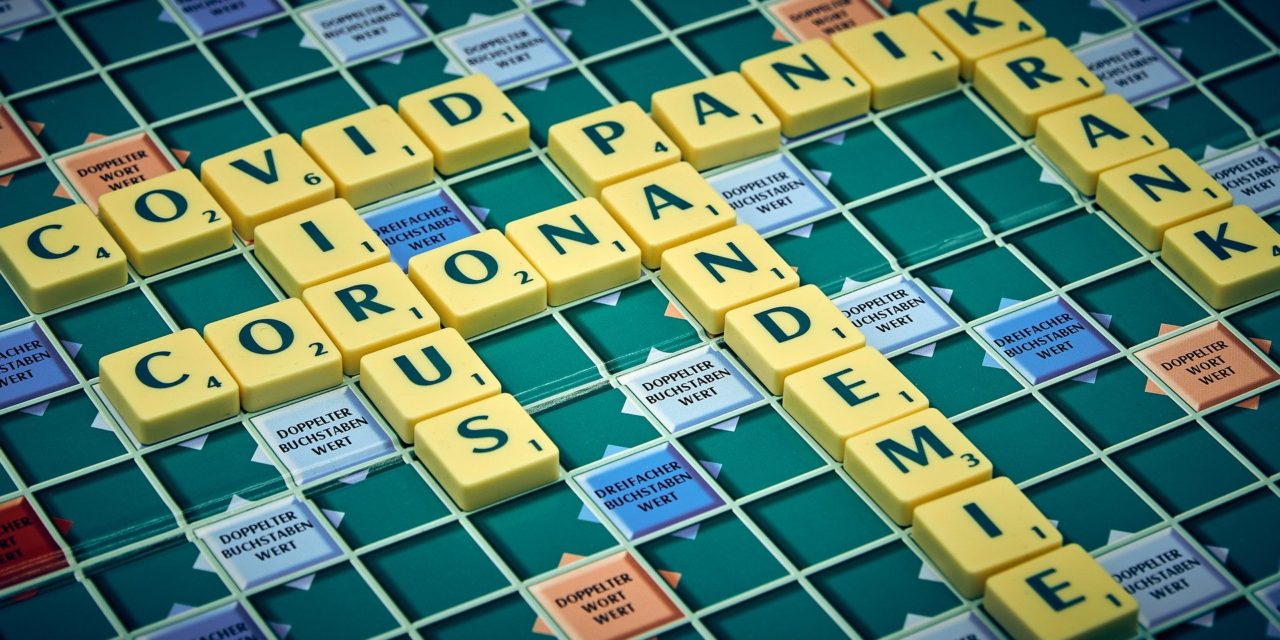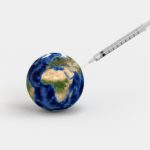Six weeks into the Covid-19 lockdown and the graphs are starting to diverge. Some countries are doing much better than others. Perhaps. On the surface it’s like the C-19 crisis has become a sort of World Cup for political fuck-wittery. And as usual with World Cups Germany appears to be the winner with the USA is playing a different game entirely. Inbetween though, a few, plucky wildcards (New Zealand, Denmark and South Korea) have surprised the tournament favourites.
Except that, long term, it might not be that simple. Until such time as a vaccine (probable, but not imminent) or a cure (ditto) comes along, the only way to eliminate the virus altogether would be if every single person on the planet agrees to stay indoors for two weeks starting…now. Oh, and no one kiss a pangolin or Batman, definitely not with tongues.
Failing that, we have to assume that the virus is with us for a while and the combination of its high-level virulence and our mass lack-of-immunity will mean that all of us are going to get it at some point.
Given the images of those who are suffering, that’s worrying. But it might turn out to be more worrying for those countries who have kept numbers down in the first wave because, as lockdowns get lifted, their second wave might turn out to be a tsunami, while the UK, Italy, France and Spain endure a more manageable force-8 storm .
The UK Government’s decision to ‘follow the science’ has become an oft-repeated mantra that’s hard to argue with, but easy to criticise. Some take issue that the definition of science has been broadened to include data scientists and political scientists in the Scientific Advisory Group for Emergencies (SAGE).
A No 10 spokesman says having political advisors is normal at such meetings, the scientists say it’s never happened before and so it goes on. Like many people it seemed odd to me at first, but, actually, when you think about it, having someone halfway between full-on science and politicians – the people who are actually going to turn the advice into action – is probably a good thing.
I used to be a scientist and, unless things have changed dramatically, my experience was that, there’s a big difference between the kind of brains that are good at planning experiments, getting the data, analysing it to provide the right conclusion and those who understand what the smartest application for those results are.
Political and data science might not involve the smoke, smells and explosions of traditional experimentation, but they are equally valuable tools in working out what to do next. Politics has moved on a lot in the last ten years. Not so much about kissing as counting babies these days – analysing and manipulating every measurable piece of data. The amount of science, psychology and modelling makes everything that went before look like an unkissed kiddie’s playgroup.
It’s unfair to criticise the UK (or any other government apart from the Americans, in this instance) for making mistakes with C-19. The speed of decisions required and a need to be forceful and committed to each and every one of them comes courtesy of a timescale and events that no one can truly predict. Germany’s next ambassador to the UK admitted on the TV recently that Germany’s performance has been as much due to luck (‘We chose the correct strategy and ran it very well’) as anything.
Whether by luck, judgement or otherwise it might turn out in the long run that the UK’s strategy has actually been a better one. There might have been significant and, of course, tragic loss of life in the first phase, but that might allow the rest of this first year of the pandemic to be consistently awful, but not catastrophic.
When Hollywood makes the movie of Covid-19, I’d like to think that jovial Johnson, renamed Bovid-19 (played by either Jason Statham or Ed Sheeran) will be seen cunningly strategising with Dominic Cummings (played by Daniel Craig or Michael Gove) about how they purposely let the death rate get to just under 1000 a day by holding off on an early lockdown. Then they, held it there through sheer cunning and pluck, before introducing mass testing six weeks into the crisis in perfect time to manage the levels at around 500 daily deaths throughout the summer This allowed the UK to come out of full-time lockdown in December, way ahead of Jonny Smartpants foreigner, now sinking under a spiral of second and third-wave caseloads and choking on their straight bananas.
Do-Jo stand on the white cliffs of Dover before flying their Spitfires to Brussels just in time to pull-off a brilliant trade deal with the EU’s last-remaining negotiators; Arsene Wenger, Renee from Allo Allo and that bloke from Eurotrash after the rest were ravaged by their supposedly superior strategy for C-19.
Germany might have been leading at half time, but the plucky Brits came back in extra time and stole the silverware. They think it’s all over…etc
And the point is…?
No one knows. There might not even be a correct strategy to defeat C-19, because as long as one person out there is infected, there’s always a chance it can come back. But (and I say this as a lifelong leftie and someone who despises the politics and policies of the current generation of Tories) instead of looking for cracks in the strategy and opportunities to tear it apart, maybe we should accept that they are genuinely doing their best and, in return, maybe they should be bold enough to admit that some days they simply haven’t got a clue how to fix it.
Which is why both we and they should probably spend at least 30 seconds of our Thursday night clapping applauding the scientists too.










